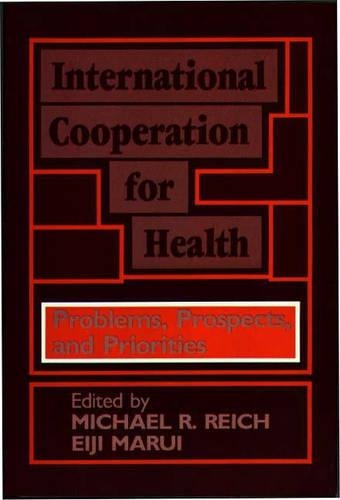
International Cooperation for Health: Problems, Prospects, and Priorities
(Hardback)
Publishing Details
International Cooperation for Health: Problems, Prospects, and Priorities
By (Author) Eiji Marui
Bloomsbury Publishing PLC
Praeger Publishers Inc
30th June 1989
United States
Classifications
Tertiary Education
Non Fiction
International institutions / intergovernmental organizations
362.1
Physical Properties
Hardback
416
Description
Enormous progress has been made in global health conditions during the past several decades, yet chronic hunger and illness persist in poor countries. The authors analyze the potential of international cooperation to improve health in poor countries. Drawing on various disciplines, including public health, economics, and other social sciences, the authors stress the need for collaborative processes and local institution strengthening.
Reviews
Seventeen contributions, from the Third Takemi Symposium on International Health held during 1988 in Tokyo, evaluate past efforts and provide recommendations about future international cooperation to promote health in developing countries. The volume presents discussions of changing health conditions as well as institutional capacity in both developing and developed countries. Country studies examine the effects of international cooperation in Sri Lanka, Korea, Japan, and Tanzania. . . .-Economic Books
"Seventeen contributions, from the Third Takemi Symposium on International Health held during 1988 in Tokyo, evaluate past efforts and provide recommendations about future international cooperation to promote health in developing countries. The volume presents discussions of changing health conditions as well as institutional capacity in both developing and developed countries. Country studies examine the effects of international cooperation in Sri Lanka, Korea, Japan, and Tanzania. . . ."-Economic Books
Author Bio
MICHAEL R. REICH is Associate Professor of International Health, Harvard University School of Public Health. EIJI MARUI is on the Faculty of Medicine, Division of International Health, at the University of Tokyo.
